Can older women give birth naturally? And inspection items and precautions
2022-04-10
How old is an advanced maternal age? Medically, producers over the age of 35 are defined as "senior mothers" and currently account for about 5%. After the introduction of the national "universal two-child" policy, many families have the idea of having a second child, and the proportion of elderly mothers has gradually increased.
After the age of 35, women increase with age, and the risk of complications such as gestational hypertension, placenta previa, premature birth, premature rupture of membranes, gestational diabetes, and postpartum hemorrhage is significantly higher in advanced-age women than in school-aged women. Because the mother's physical fitness is no longer at its peak, the problems of babies born to older mothers are also greater than those of school-age mothers, such as infant congenital ignorance, cardiovascular malformations, cleft lip, cleft palate and other deformities are also increasing. Therefore, elderly mothers should strengthen perinatal health care, actively prevent pregnancy complications and complications, and be admitted to hospital in advance to ensure the safety of mothers and babies.
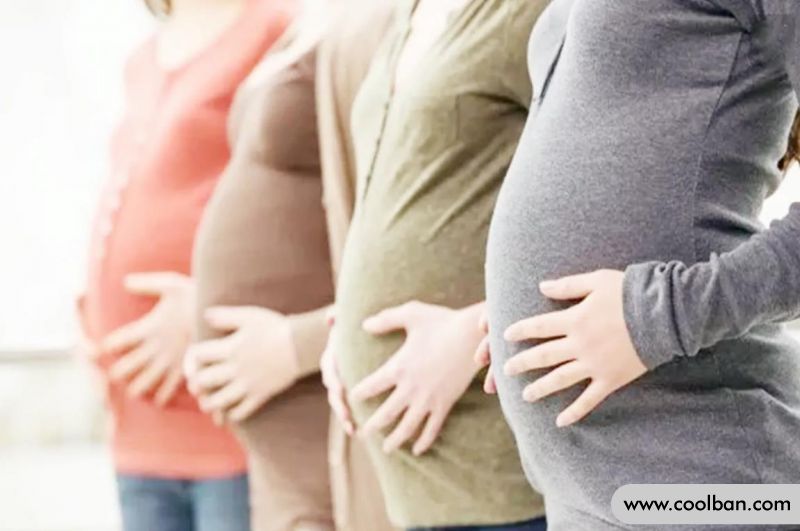
What are the obstetric examination items for elderly women?
In recent years, whenever an elderly actress announces her pregnancy, it can always cause heated discussions among the people who eat melons. Yes, it is really not easy to get pregnant over the age of 35. Due to the decline of physical function, elderly expectant mothers are younger on the road to pregnancy. It is more difficult and dangerous for expectant mothers of , therefore, prenatal examination is very important for expectant mothers of advanced age.
1. Older expectant mothers pay more attention to obstetric examinations
Question 1: Difficulty getting pregnant
As expectant mothers age, the quality and quantity of eggs decline, and so does a woman's fertility. Even in vitro fertilization, the success rate drops sharply with age. In addition, as women age, gynecological diseases become more and more common, which can easily make it difficult for older women to conceive.
Issue 2: High risk of birth defects in babies
Some data show that the birth rate of Down's children increases rapidly as pregnant women get older. A 20-year-old woman has a 1 in 1477 chance of having a Down syndrome child, and a 35-year-old woman has a 1 in 353 chance. In 1 in 85, the risk is as high as 1 in 39 at age 44.
Issue 3: Pregnancy complications
Older expectant mothers are at high risk of gestational diabetes and gestational hypertension. The older you are, the greater the risk! These pregnancy complications not only damage the health of the mother, but also the health of the fetus.
For older expecting mothers, the arrival of the baby is more difficult and the risk of delivery is higher. Therefore, expectant mothers of advanced age should pay more attention to pregnancy examinations, always pay attention to the health of themselves and their babies, and detect risks early and deal with them early.
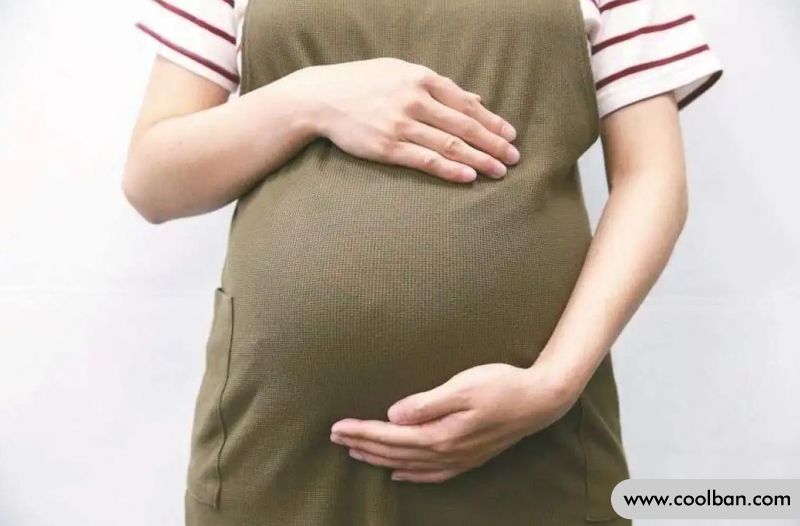
Second, obstetric examination items that elderly expectant mothers need to focus on
Inspection item 1: Ultrasound screening in the first trimester should be performed at 11 to 13 weeks + 6 days of pregnancy, mainly to see whether the fetal development is sound, and to exclude the absence of nasal bones, spina bifida, and anencephaly. Also, at this stage, it is important to check the zona pellucida of the fetus, because the thicker the zona pellucida of the fetus, the higher the probability of chromosomal and heart disease after birth.
Inspection item 2: At 12-22 weeks + 6 days of pregnancy, pregnant women whose expected date of delivery is 35-39 years old and who are only at high risk factors can perform non-invasive DNA testing to see the fetus after signing the informed consent form Is there a risk of chromosomal abnormalities. If high risk is detected, a sheep blood transfusion is performed for further diagnosis. For pregnant women with an expected date of delivery ≥40 years old, chorionic villus puncture or amniocentesis is recommended for diagnosis, but these two methods are invasive and carry a certain risk of miscarriage.
Inspection item 3: From 20 to 24 weeks of gestation, systematic fetal ultrasound screening (often referred to as "major row") and cervical length measurement (to assess the risk of preterm birth).
Inspection item 4: During the entire pregnancy, regularly monitor body weight, blood sugar, blood pressure, and fetal heart rate to avoid pregnancy complications such as gestational diabetes and gestational hypertension, and early detection and early intervention.
In addition, some routine obstetric examination items such as basic blood test, physical examination, electrocardiogram, B-ultrasound, etc. should not be ignored. Seek medical treatment in time if abnormality is found. I believe that every expectant mother will welcome her own cute little angel.
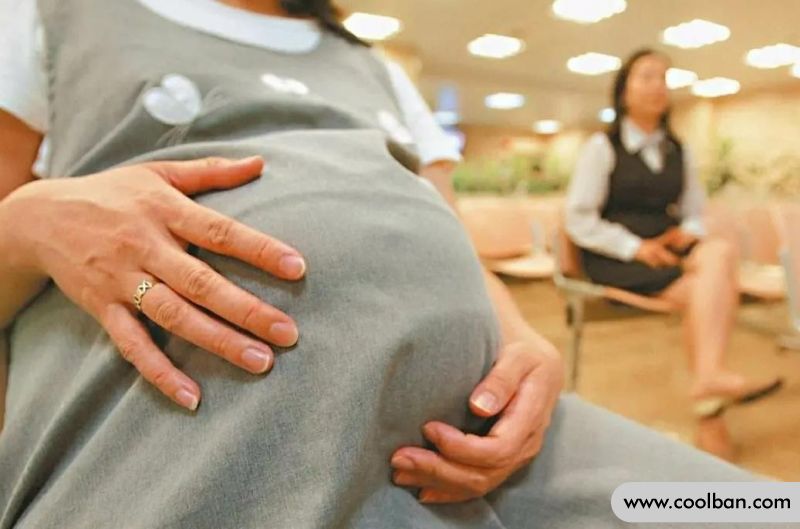
Pregnancy precautions for elderly mothers
In recent years, the number of older mothers has increased. Some people are afraid of having children because of work pressure, and some people want to enjoy the two-person world and do not want to have children prematurely. But do you know what the risks are for older mothers? How can older women prepare for childbirth?
1. What is an advanced maternal age?
According to medical regulations, 35 years or older is considered a pregnancy of advanced age. Before 1992, pregnant women over the age of 30 who gave birth for the first time were referred to as advanced-age women in China. However, with the advancement of medical technology, the development and utilization of special drugs and the opening of advanced medical facilities, the age of first birth for elderly mothers has been postponed to over 35 years old. However, older mothers still face many risks.
2. What are the risks for elderly mothers?
Risk 1: High chance of Down syndrome
If women give birth too late, the eggs will be polluted by more environment, coupled with the decline of ovarian function, the eggs are easy to age, resulting in an increase in the incidence of teratogenic and puerperal babies.
Relevant statistics show that the incidence of congenital fools (also known as Down syndrome) doubles with the age of pregnant women. In the general population, the incidence of the disease is 1 in 1,000, and in women over the age of 35, the incidence is 1%-2%.
Risk 2: High pregnancy failure rate
According to a Danish study, by age 35, women have a 20% chance of failing a pregnancy due to reasons such as stillbirth, miscarriage or ectopic pregnancy. By the age of 42, the failure rate is as high as 50% or more. It can be seen that with the increase of age, the probability of pregnancy failure will greatly increase.
Risk 3: Increased risk of dystocia
Poor pelvic ligament laxity, poor uterine contractility, and poor vaginal stretch in elderly mothers can easily lead to prolonged delivery time, increased chances of dystocia, cesarean section, and increased neonatal complications.
In addition, the incidence of pregnancy-induced hypertension syndrome, gestational diabetes mellitus, intrauterine growth retardation, etc. among older women is significantly higher than that of younger women. Therefore, in order to have a healthy baby, it is very important to make various preparations in advance.

3. How to prepare for childbirth for elderly puerperae?
Preparation 1: Pre-pregnancy checkup
Through pre-pregnancy examinations, older mothers can detect and deal with problems early. For example, high blood pressure and diabetes, which are most common in women over 35, can be controlled before pregnancy.
Preparation 2: Folic acid supplements
In the first 3 months of pregnancy, elderly mothers should actively follow the doctor's advice to supplement folic acid to prevent the occurrence of fetal neural tube defects. If folic acid was not taken before pregnancy, supplementation should be continued after pregnancy until around 12 weeks of pregnancy.
Preparation 3: Prenatal diagnosis
The "Measures for the Implementation of the Law of the People's Republic of China on Maternal and Infant Health Care" stipulates that primiparas over the age of 35 should undergo prenatal diagnosis, such as chorionic villus puncture, amniotic fluid examination, etc., to determine whether there is any abnormality in fetal development.
Preparation 4: Strengthening Monitoring
Older women are prone to pregnancy-induced hypertension and gestational diabetes. During pregnancy, self-monitoring of their own blood sugar, blood pressure and other indicators should be strengthened to ensure good health.
According to doctors, for gestational hypertension, pregnant women should ensure adequate rest, pay attention to the intake of protein, vitamins, calcium and iron in the diet, and control the intake of high-calorie foods.
For gestational diabetes, the staple food must be mainly refined grains, whole grains, green leafy vegetables with low sugar content (such as spinach, lettuce, etc.), and high-protein and low-fat ingredients (such as lean meat, fish, shrimp, eggs, milk, etc.) etc.), sugar and nuts are reduced or eliminated. Insist on eating small meals frequently, and take a walk for 25-30 minutes after meals to avoid sudden spikes in blood sugar.
Preparation 5: Choose the right way of giving birth
The choice of delivery method for elderly mothers should be determined according to their own circumstances and doctor's advice. If the uterine contractions are good and the fetal position is normal, vaginal delivery can be used; if the maternal condition is not good, cesarean section should be performed in time to ensure the safety of the mother. Therefore, elderly mothers should go to a hospital with better conditions to give birth, and if necessary, they should be admitted to the hospital for delivery as soon as possible.
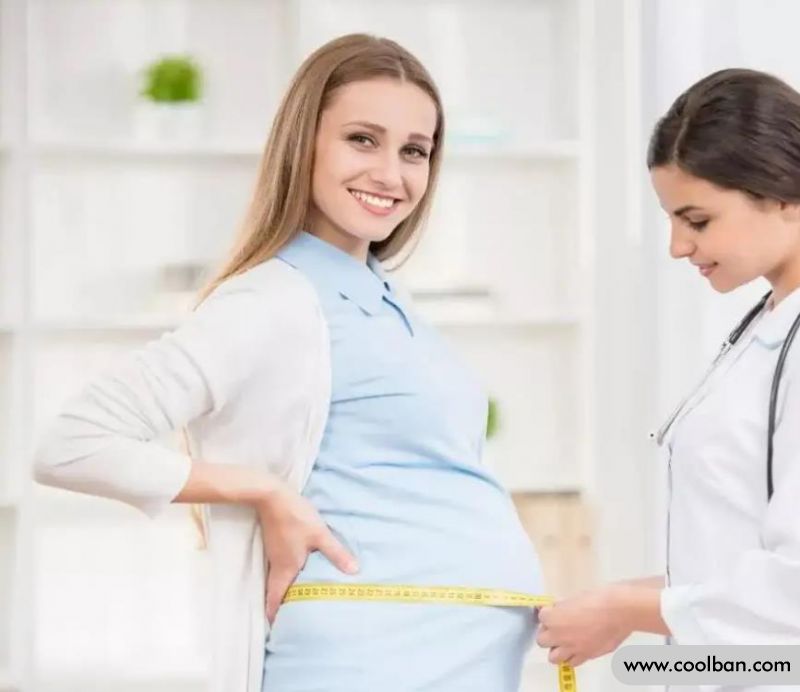
Pregnancy precautions for elderly women
What should pregnant women pay attention to? Older women should pay more attention during pregnancy because they are disadvantaged in terms of age. There are many issues that older mothers need to pay attention to. So, what are the precautions for elderly mothers?
Note 1: Pregnancy test. Pregnancy examinations are very important for elderly women, and pregnant women should increase the frequency of obstetric examinations appropriately. Particular attention should be paid to blood glucose and blood pressure indicators. At 16-20 weeks of pregnancy, Down's screening should be performed, which is a must-do item for older women. After 20 weeks of pregnancy, an amniocentesis is performed to check for abnormalities in the fetus. Normal young pregnant women do not need this test. In addition, elderly mothers should learn to use fetal language instruments, perform basic fetal heart rate monitoring at home, draw standard monitoring curves, and keep abreast of fetal development.
Note 2: Folic acid should be taken orally 1 month before pregnancy. Taking folic acid can prevent developmental disorders of the nervous system. If you did not take folic acid in time before pregnancy, continue to supplement it after pregnancy until 12 weeks of pregnancy. Foods rich in folic acid include animal liver, beets, cauliflower, green leafy vegetables and orange juice. Eating more fruits and vegetables can supplement folic acid. Sufficient zinc must be available during the initial stages of embryonic development, and zinc is also present in beef, seafood, and animal liver.
Note 3: Adequate sleep. Adequate sleep is an important guarantee for advanced mothers to improve their immunity and protect the health of mothers and babies. In addition to ensuring 8-9 hours of sleep every night, you should also take a 1-hour nap at noon, and add walnuts, dates and other foods to your meals.
Note 4: diet. High protein, low fat, bland foods are recommended. Tea, alcohol, tobacco, coffee, and foods containing alcohol and caffeine are not suitable.
Note 5: You should also stay away from bad circumstances in your life.
E.g:
(1) Not suitable for too noisy and crowded spaces.
(2) X-rays, radioactive iodine and other radiation or people receiving radiation therapy are not suitable for exposure.
(3) Do not arbitrarily use antibiotics or hormone drugs unless prescribed by a doctor. Of course, sleeping pills, sedatives, and anticonvulsants should not be used at will.
(4) Keep away from patients with infectious diseases. Measles, cytomegalovirus and herpes simplex virus can affect the fetus and should be avoided.
Note 6: It is difficult for elderly women to give birth naturally, and they need to be prepared in advance. The indications for cesarean section are higher in elderly women, and 90% of pregnant women usually choose cesarean section. The pelvis of elderly mothers is relatively hard, the ligaments and soft birth canal tissues are less elastic, and the uterine contractility is correspondingly weakened, which is likely to lead to prolonged labor, even dystocia, fetal damage and asphyxia.
Compared with other pregnant women, elderly women should pay more attention to nursing during pregnancy. Due to the reduced elasticity of the muscles of the birth canal and perineum, and the stiffness of the ligaments of the pelvic joints, dystocia is easy to occur during childbirth, and complications such as hypertension and diabetes are prone to occur. Babies of older mothers may also be more prone to deformities and lower-born babies than women of school age. But there's no need to be nervous about it. Just pay attention to actively cooperate with the doctor, do prenatal examinations on time, maintain good health, and pay attention to nutrition and exercise during pregnancy. With the improvement of medical level, most elderly mothers can go through pregnancy and childbirth smoothly.
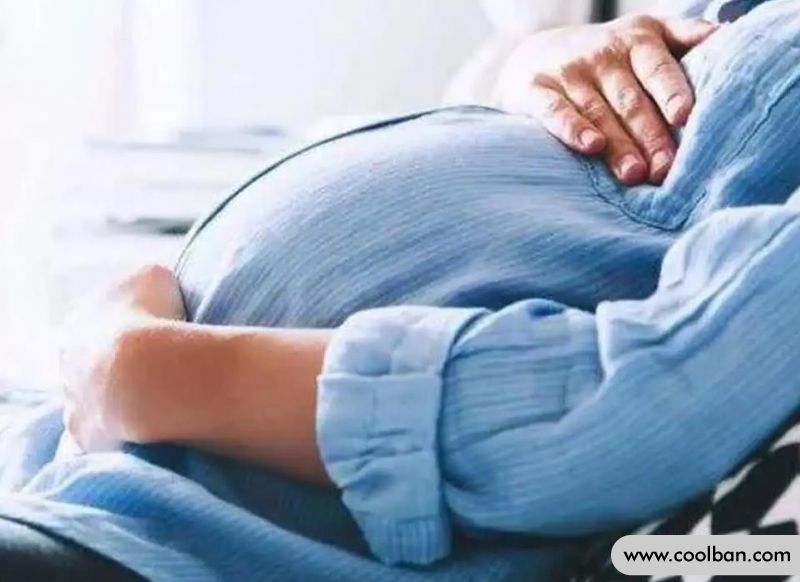
Hazards of elderly mothers
Hazard 1: Injury to the mother. Susceptible to pregnancy-induced hypertension, preeclampsia and other diseases, due to late delivery, poor elasticity of joint ligaments, weak uterine contractions, leading to dystocia, postpartum infection and postpartum anemia, and easy to cause physical weakness.
Harm 2: Harm to children. By the time women reach middle age, the joints of the ischium, pubis, ilium, and cuboid have largely ossified to form a fixed pelvic cavity. Therefore, when the fetus is delivered, it is easy to cause production difficulties, which greatly increases the risk of various complications for the mother; at the same time, it is also easy to cause the fetus to remain in the uterus, resulting in fetal distress. This kind of distress is a threat to the fetus, and in mild cases, it affects the fetal heart and brain ischemia and hypoxia, and even leads to irreversible brain damage. Neonatal injury is prone to occur during childbirth, neonatal asphyxia is prone to occur, and the incidence of deformed children increases.
What checks should be done for elderly mothers
Older mothers should pay special attention to examinations during pregnancy, increase the frequency of obstetric examinations, and always pay attention to their physical changes.
Inspection item 1: Ultrasound examination. Generally need to do two times, respectively, at 12 weeks and 20 weeks. This test can be used to further determine the date of pregnancy and any developmental abnormalities such as cleft palate, organ abnormalities.
Check item 2: Down syndrome screening. Down's screening should be performed at 16-20 weeks of pregnancy. This test is to draw the blood of pregnant women, detect the amount and concentration of various substances in the blood, and then determine some diseases that the fetus may have.
Check item 3: Amniocentesis. Do amniocentesis after 20 weeks of pregnancy. Normal young pregnant women do not need this test. Studies have shown that the older the pregnant woman is, the higher the incidence of congenital ignorance and deformed children. This is because as a woman ages, the ovaries gradually age and degenerate, and the eggs produced will naturally age, and the chance of chromosomal abnormalities will also increase. This test can directly get the number of chromosomes, and based on the test results, you can know whether the fetus has abnormalities. The test has a 0.5% chance of causing a miscarriage.
Inspection item 4: Alpha-fetoprotein detection. Taken at 16-20 weeks, it is a harmless blood test that measures alpha-fetoprotein levels in the blood and can detect neurological deficits, Down syndrome, kidney and liver disease, and more.
Check item 5: Pay more attention to indicators such as blood sugar and blood pressure. Older women are more prone to pregnancy complicated by heart disease, pregnancy-induced hypertension syndrome and gestational diabetes. Because the blood volume of pregnant women is significantly higher than that of non-pregnant women, it increases the burden on the heart. Pregnant women who already have heart disease are likely to end their pregnancy prematurely due to intolerance.

Can elderly women give birth naturally?
Can older women give birth naturally? Elderly mothers and twin mothers are also at high risk of pregnancy, and caesarean section is usually recommended.
Older mothers need to do prenatal diagnosis and fetal chromosomal examination. At 20-23 weeks, amniocentesis can be done to check fetal chromosomes. If the pregnant woman has a history of multiple uterine operations, there may be a possibility of placental adhesion or placenta accreta, and the next occurrence is the possibility of postpartum hemorrhage. In this case, vaginal delivery is not recommended.
But everything is not absolute, and many elderly mothers can also give birth naturally. As long as the baby is not too big, the fetal position is correct, and all the indicators of the pregnant woman are normal, vaginal delivery can be considered. The biological age of modern people is generally younger than before. Although the 35-year-old is an advanced mother, if conditions permit, it is still recommended to have a natural birth, but if it is over 40 years old, it is recommended to have a caesarean section. The doctor will make recommendations based on the specific circumstances of each pregnant woman.
What can an elderly pregnant woman not eat
Compared with pregnant women in their 20s, older expecting mothers are more likely to gain weight during pregnancy, gain too much weight, which can lead to diabetes, and a baby that grows too large can make childbirth difficult. This is when you need to control your weight. Generally, the weight gain of pregnant women at 40 weeks of pregnancy does not exceed 12.5 kg, of which the fetus accounts for about 3-3.5 kg.
Avoid the following high-sugar foods, which are responsible for obesity:
Any sweetener: including sugar, syrup, aspartame, candy and chocolate, cola or artificially sweetened juice drinks, canned fruit, margarine, ice cream, sherbet, sweetened peanut butter, salad dressing, etc.
After the age of 35, women increase with age, and the risk of complications such as gestational hypertension, placenta previa, premature birth, premature rupture of membranes, gestational diabetes, and postpartum hemorrhage is significantly higher in advanced-age women than in school-aged women. Because the mother's physical fitness is no longer at its peak, the problems of babies born to older mothers are also greater than those of school-age mothers, such as infant congenital ignorance, cardiovascular malformations, cleft lip, cleft palate and other deformities are also increasing. Therefore, elderly mothers should strengthen perinatal health care, actively prevent pregnancy complications and complications, and be admitted to hospital in advance to ensure the safety of mothers and babies.

What are the obstetric examination items for elderly women?
In recent years, whenever an elderly actress announces her pregnancy, it can always cause heated discussions among the people who eat melons. Yes, it is really not easy to get pregnant over the age of 35. Due to the decline of physical function, elderly expectant mothers are younger on the road to pregnancy. It is more difficult and dangerous for expectant mothers of , therefore, prenatal examination is very important for expectant mothers of advanced age.
1. Older expectant mothers pay more attention to obstetric examinations
Question 1: Difficulty getting pregnant
As expectant mothers age, the quality and quantity of eggs decline, and so does a woman's fertility. Even in vitro fertilization, the success rate drops sharply with age. In addition, as women age, gynecological diseases become more and more common, which can easily make it difficult for older women to conceive.
Issue 2: High risk of birth defects in babies
Some data show that the birth rate of Down's children increases rapidly as pregnant women get older. A 20-year-old woman has a 1 in 1477 chance of having a Down syndrome child, and a 35-year-old woman has a 1 in 353 chance. In 1 in 85, the risk is as high as 1 in 39 at age 44.
Issue 3: Pregnancy complications
Older expectant mothers are at high risk of gestational diabetes and gestational hypertension. The older you are, the greater the risk! These pregnancy complications not only damage the health of the mother, but also the health of the fetus.
For older expecting mothers, the arrival of the baby is more difficult and the risk of delivery is higher. Therefore, expectant mothers of advanced age should pay more attention to pregnancy examinations, always pay attention to the health of themselves and their babies, and detect risks early and deal with them early.

Second, obstetric examination items that elderly expectant mothers need to focus on
Inspection item 1: Ultrasound screening in the first trimester should be performed at 11 to 13 weeks + 6 days of pregnancy, mainly to see whether the fetal development is sound, and to exclude the absence of nasal bones, spina bifida, and anencephaly. Also, at this stage, it is important to check the zona pellucida of the fetus, because the thicker the zona pellucida of the fetus, the higher the probability of chromosomal and heart disease after birth.
Inspection item 2: At 12-22 weeks + 6 days of pregnancy, pregnant women whose expected date of delivery is 35-39 years old and who are only at high risk factors can perform non-invasive DNA testing to see the fetus after signing the informed consent form Is there a risk of chromosomal abnormalities. If high risk is detected, a sheep blood transfusion is performed for further diagnosis. For pregnant women with an expected date of delivery ≥40 years old, chorionic villus puncture or amniocentesis is recommended for diagnosis, but these two methods are invasive and carry a certain risk of miscarriage.
Inspection item 3: From 20 to 24 weeks of gestation, systematic fetal ultrasound screening (often referred to as "major row") and cervical length measurement (to assess the risk of preterm birth).
Inspection item 4: During the entire pregnancy, regularly monitor body weight, blood sugar, blood pressure, and fetal heart rate to avoid pregnancy complications such as gestational diabetes and gestational hypertension, and early detection and early intervention.
In addition, some routine obstetric examination items such as basic blood test, physical examination, electrocardiogram, B-ultrasound, etc. should not be ignored. Seek medical treatment in time if abnormality is found. I believe that every expectant mother will welcome her own cute little angel.

Pregnancy precautions for elderly mothers
In recent years, the number of older mothers has increased. Some people are afraid of having children because of work pressure, and some people want to enjoy the two-person world and do not want to have children prematurely. But do you know what the risks are for older mothers? How can older women prepare for childbirth?
1. What is an advanced maternal age?
According to medical regulations, 35 years or older is considered a pregnancy of advanced age. Before 1992, pregnant women over the age of 30 who gave birth for the first time were referred to as advanced-age women in China. However, with the advancement of medical technology, the development and utilization of special drugs and the opening of advanced medical facilities, the age of first birth for elderly mothers has been postponed to over 35 years old. However, older mothers still face many risks.
2. What are the risks for elderly mothers?
Risk 1: High chance of Down syndrome
If women give birth too late, the eggs will be polluted by more environment, coupled with the decline of ovarian function, the eggs are easy to age, resulting in an increase in the incidence of teratogenic and puerperal babies.
Relevant statistics show that the incidence of congenital fools (also known as Down syndrome) doubles with the age of pregnant women. In the general population, the incidence of the disease is 1 in 1,000, and in women over the age of 35, the incidence is 1%-2%.
Risk 2: High pregnancy failure rate
According to a Danish study, by age 35, women have a 20% chance of failing a pregnancy due to reasons such as stillbirth, miscarriage or ectopic pregnancy. By the age of 42, the failure rate is as high as 50% or more. It can be seen that with the increase of age, the probability of pregnancy failure will greatly increase.
Risk 3: Increased risk of dystocia
Poor pelvic ligament laxity, poor uterine contractility, and poor vaginal stretch in elderly mothers can easily lead to prolonged delivery time, increased chances of dystocia, cesarean section, and increased neonatal complications.
In addition, the incidence of pregnancy-induced hypertension syndrome, gestational diabetes mellitus, intrauterine growth retardation, etc. among older women is significantly higher than that of younger women. Therefore, in order to have a healthy baby, it is very important to make various preparations in advance.

3. How to prepare for childbirth for elderly puerperae?
Preparation 1: Pre-pregnancy checkup
Through pre-pregnancy examinations, older mothers can detect and deal with problems early. For example, high blood pressure and diabetes, which are most common in women over 35, can be controlled before pregnancy.
Preparation 2: Folic acid supplements
In the first 3 months of pregnancy, elderly mothers should actively follow the doctor's advice to supplement folic acid to prevent the occurrence of fetal neural tube defects. If folic acid was not taken before pregnancy, supplementation should be continued after pregnancy until around 12 weeks of pregnancy.
Preparation 3: Prenatal diagnosis
The "Measures for the Implementation of the Law of the People's Republic of China on Maternal and Infant Health Care" stipulates that primiparas over the age of 35 should undergo prenatal diagnosis, such as chorionic villus puncture, amniotic fluid examination, etc., to determine whether there is any abnormality in fetal development.
Preparation 4: Strengthening Monitoring
Older women are prone to pregnancy-induced hypertension and gestational diabetes. During pregnancy, self-monitoring of their own blood sugar, blood pressure and other indicators should be strengthened to ensure good health.
According to doctors, for gestational hypertension, pregnant women should ensure adequate rest, pay attention to the intake of protein, vitamins, calcium and iron in the diet, and control the intake of high-calorie foods.
For gestational diabetes, the staple food must be mainly refined grains, whole grains, green leafy vegetables with low sugar content (such as spinach, lettuce, etc.), and high-protein and low-fat ingredients (such as lean meat, fish, shrimp, eggs, milk, etc.) etc.), sugar and nuts are reduced or eliminated. Insist on eating small meals frequently, and take a walk for 25-30 minutes after meals to avoid sudden spikes in blood sugar.
Preparation 5: Choose the right way of giving birth
The choice of delivery method for elderly mothers should be determined according to their own circumstances and doctor's advice. If the uterine contractions are good and the fetal position is normal, vaginal delivery can be used; if the maternal condition is not good, cesarean section should be performed in time to ensure the safety of the mother. Therefore, elderly mothers should go to a hospital with better conditions to give birth, and if necessary, they should be admitted to the hospital for delivery as soon as possible.

Pregnancy precautions for elderly women
What should pregnant women pay attention to? Older women should pay more attention during pregnancy because they are disadvantaged in terms of age. There are many issues that older mothers need to pay attention to. So, what are the precautions for elderly mothers?
Note 1: Pregnancy test. Pregnancy examinations are very important for elderly women, and pregnant women should increase the frequency of obstetric examinations appropriately. Particular attention should be paid to blood glucose and blood pressure indicators. At 16-20 weeks of pregnancy, Down's screening should be performed, which is a must-do item for older women. After 20 weeks of pregnancy, an amniocentesis is performed to check for abnormalities in the fetus. Normal young pregnant women do not need this test. In addition, elderly mothers should learn to use fetal language instruments, perform basic fetal heart rate monitoring at home, draw standard monitoring curves, and keep abreast of fetal development.
Note 2: Folic acid should be taken orally 1 month before pregnancy. Taking folic acid can prevent developmental disorders of the nervous system. If you did not take folic acid in time before pregnancy, continue to supplement it after pregnancy until 12 weeks of pregnancy. Foods rich in folic acid include animal liver, beets, cauliflower, green leafy vegetables and orange juice. Eating more fruits and vegetables can supplement folic acid. Sufficient zinc must be available during the initial stages of embryonic development, and zinc is also present in beef, seafood, and animal liver.
Note 3: Adequate sleep. Adequate sleep is an important guarantee for advanced mothers to improve their immunity and protect the health of mothers and babies. In addition to ensuring 8-9 hours of sleep every night, you should also take a 1-hour nap at noon, and add walnuts, dates and other foods to your meals.
Note 4: diet. High protein, low fat, bland foods are recommended. Tea, alcohol, tobacco, coffee, and foods containing alcohol and caffeine are not suitable.
Note 5: You should also stay away from bad circumstances in your life.
E.g:
(1) Not suitable for too noisy and crowded spaces.
(2) X-rays, radioactive iodine and other radiation or people receiving radiation therapy are not suitable for exposure.
(3) Do not arbitrarily use antibiotics or hormone drugs unless prescribed by a doctor. Of course, sleeping pills, sedatives, and anticonvulsants should not be used at will.
(4) Keep away from patients with infectious diseases. Measles, cytomegalovirus and herpes simplex virus can affect the fetus and should be avoided.
Note 6: It is difficult for elderly women to give birth naturally, and they need to be prepared in advance. The indications for cesarean section are higher in elderly women, and 90% of pregnant women usually choose cesarean section. The pelvis of elderly mothers is relatively hard, the ligaments and soft birth canal tissues are less elastic, and the uterine contractility is correspondingly weakened, which is likely to lead to prolonged labor, even dystocia, fetal damage and asphyxia.
Compared with other pregnant women, elderly women should pay more attention to nursing during pregnancy. Due to the reduced elasticity of the muscles of the birth canal and perineum, and the stiffness of the ligaments of the pelvic joints, dystocia is easy to occur during childbirth, and complications such as hypertension and diabetes are prone to occur. Babies of older mothers may also be more prone to deformities and lower-born babies than women of school age. But there's no need to be nervous about it. Just pay attention to actively cooperate with the doctor, do prenatal examinations on time, maintain good health, and pay attention to nutrition and exercise during pregnancy. With the improvement of medical level, most elderly mothers can go through pregnancy and childbirth smoothly.

Hazards of elderly mothers
Hazard 1: Injury to the mother. Susceptible to pregnancy-induced hypertension, preeclampsia and other diseases, due to late delivery, poor elasticity of joint ligaments, weak uterine contractions, leading to dystocia, postpartum infection and postpartum anemia, and easy to cause physical weakness.
Harm 2: Harm to children. By the time women reach middle age, the joints of the ischium, pubis, ilium, and cuboid have largely ossified to form a fixed pelvic cavity. Therefore, when the fetus is delivered, it is easy to cause production difficulties, which greatly increases the risk of various complications for the mother; at the same time, it is also easy to cause the fetus to remain in the uterus, resulting in fetal distress. This kind of distress is a threat to the fetus, and in mild cases, it affects the fetal heart and brain ischemia and hypoxia, and even leads to irreversible brain damage. Neonatal injury is prone to occur during childbirth, neonatal asphyxia is prone to occur, and the incidence of deformed children increases.
What checks should be done for elderly mothers
Older mothers should pay special attention to examinations during pregnancy, increase the frequency of obstetric examinations, and always pay attention to their physical changes.
Inspection item 1: Ultrasound examination. Generally need to do two times, respectively, at 12 weeks and 20 weeks. This test can be used to further determine the date of pregnancy and any developmental abnormalities such as cleft palate, organ abnormalities.
Check item 2: Down syndrome screening. Down's screening should be performed at 16-20 weeks of pregnancy. This test is to draw the blood of pregnant women, detect the amount and concentration of various substances in the blood, and then determine some diseases that the fetus may have.
Check item 3: Amniocentesis. Do amniocentesis after 20 weeks of pregnancy. Normal young pregnant women do not need this test. Studies have shown that the older the pregnant woman is, the higher the incidence of congenital ignorance and deformed children. This is because as a woman ages, the ovaries gradually age and degenerate, and the eggs produced will naturally age, and the chance of chromosomal abnormalities will also increase. This test can directly get the number of chromosomes, and based on the test results, you can know whether the fetus has abnormalities. The test has a 0.5% chance of causing a miscarriage.
Inspection item 4: Alpha-fetoprotein detection. Taken at 16-20 weeks, it is a harmless blood test that measures alpha-fetoprotein levels in the blood and can detect neurological deficits, Down syndrome, kidney and liver disease, and more.
Check item 5: Pay more attention to indicators such as blood sugar and blood pressure. Older women are more prone to pregnancy complicated by heart disease, pregnancy-induced hypertension syndrome and gestational diabetes. Because the blood volume of pregnant women is significantly higher than that of non-pregnant women, it increases the burden on the heart. Pregnant women who already have heart disease are likely to end their pregnancy prematurely due to intolerance.

Can elderly women give birth naturally?
Can older women give birth naturally? Elderly mothers and twin mothers are also at high risk of pregnancy, and caesarean section is usually recommended.
Older mothers need to do prenatal diagnosis and fetal chromosomal examination. At 20-23 weeks, amniocentesis can be done to check fetal chromosomes. If the pregnant woman has a history of multiple uterine operations, there may be a possibility of placental adhesion or placenta accreta, and the next occurrence is the possibility of postpartum hemorrhage. In this case, vaginal delivery is not recommended.
But everything is not absolute, and many elderly mothers can also give birth naturally. As long as the baby is not too big, the fetal position is correct, and all the indicators of the pregnant woman are normal, vaginal delivery can be considered. The biological age of modern people is generally younger than before. Although the 35-year-old is an advanced mother, if conditions permit, it is still recommended to have a natural birth, but if it is over 40 years old, it is recommended to have a caesarean section. The doctor will make recommendations based on the specific circumstances of each pregnant woman.
What can an elderly pregnant woman not eat
Compared with pregnant women in their 20s, older expecting mothers are more likely to gain weight during pregnancy, gain too much weight, which can lead to diabetes, and a baby that grows too large can make childbirth difficult. This is when you need to control your weight. Generally, the weight gain of pregnant women at 40 weeks of pregnancy does not exceed 12.5 kg, of which the fetus accounts for about 3-3.5 kg.
Avoid the following high-sugar foods, which are responsible for obesity:
Any sweetener: including sugar, syrup, aspartame, candy and chocolate, cola or artificially sweetened juice drinks, canned fruit, margarine, ice cream, sherbet, sweetened peanut butter, salad dressing, etc.
